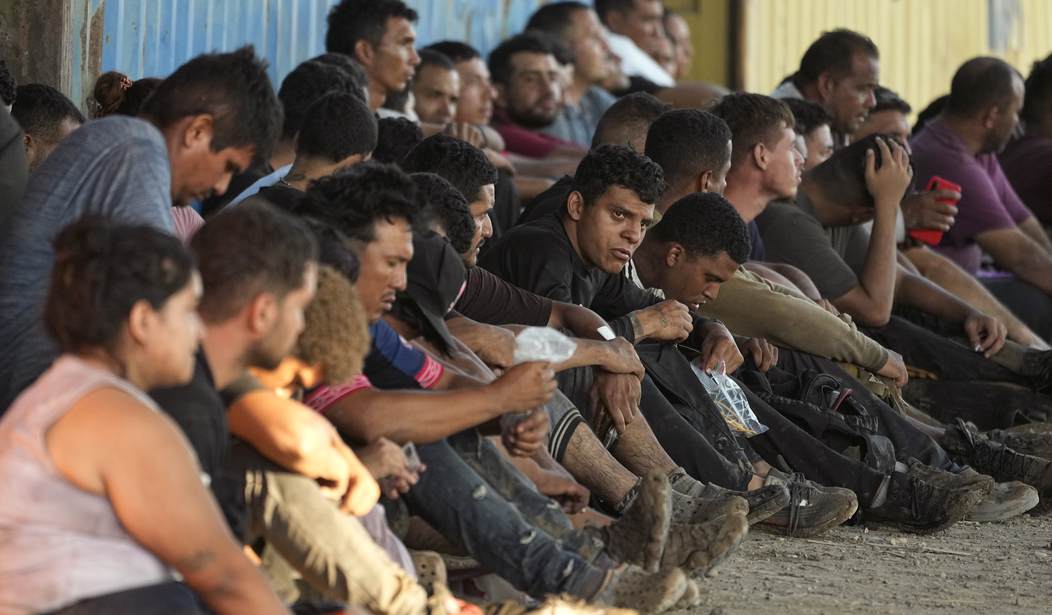Class warfare is nothing new. Karl Marx memorialized it as a political strategy in the mid-19th century and it’s been used to pit people against each other ever since. American Democrats deploy this strategy in pretty much every election cycle and 2024 is no different.
It was tried in Chicago this week in the form of a referendum on raising taxes on the sale of real estate. Called a transfer tax, this levy was described as the “mansion tax,” increasing fees on homes sold for more than $1,000,000. It also included a provision to lower the transfer tax on homes that sell for less than a million dollars.
It was a classic Democrat strategy - soak the rich, tax breaks for the not so rich. But a funny thing happened when the ballots were counted. Class warfare failed.
NBC 5 in Chicago reports that with 99% of votes counted, the referendum failed by a 54% - 46% margin, a spread of some 22,569 votes. On its face, this is a striking result. But supporters of this Marxist strategy can take heart; about 100,000 mail-in ballots remain uncounted so it’s possible the measure can pass. Remember, one of the planet’s best experts on class warfare, Soviet dictator Joseph Stalin, once quipped “Those who vote decide nothing. Those who count the vote decide everything.”
But the votes of 99% of Chicagoans tallied thus far is telling and a look at Chicago’s real estate market makes it more remarkable. The real estate website realtor.com listed 10,105 homes for sale in Chicago on March 21. Of that number, more than 87% of those houses are on the market for less than a million dollars. Let that sink in: A referendum that promised higher taxes on the affluent, while putting more money into the pockets of 87% of the city’s homeowners, failed.
Recommended
Chicago isn’t what you’d call a Mecca of home ownership. US Census data compiled by the real estate research firm Home Area shows the city's rate of home ownership in 2017 stood at 44.9%, far below the national average of 64.2% during the same period as reported by the St. Louis Federal Reserve.
The 54% - 46% spread on this referendum doesn’t qualify as a blowout landslide against higher taxes but it’s still substantial. It’s also quizzical that it failed when it promised nearly nine-out-of-10 Chicago homeowners would get to keep more of their money when selling their home. Add to this the aggressive promotion of the referendum by various liberal organizations and the result becomes curiouser still.
A coalition of groups combating the city’s homelessness problem called Bring Chicago Home, which “aims to restructure the Real Estate Transfer Tax,” played a central role in the referendum. They proclaimed it would “create a substantial and legally dedicated revenue stream to provide permanent affordable housing for people experiencing homelessness.”
Helping homeless people is a noble pursuit but doing so effectively means we must learn why people are homeless in the first place. Some are down on their luck and need help. Many others suffer from mental illness while others still are drug addicted. Providing affordable housing to this demographic, according to the language of the referendum, ignores the reasons behind homelessness and promises nothing for job placement, mental health or rehabilitation services.
But a new subset of homeless people has emerged in Chicago, adding a potent dynamic to the situation. The city has become a destination for many thousands of illegal aliens, a situation which has caught the attention of all Chicagoans, and they’re not happy about it.
Chicago Mayor Brandon Johnson recently floated a plan to kick these illegals out of temporary shelters after 60 days, but has said little of what becomes of them after they’re evicted. The mayor’s idea has drawn the ire of Chicago voters who are imploring Johnson to abandon his plans.
The city’s middle and lower income residents also raise a legitimate question for policy makers. Why is so much tax money being raised and spent to accommodate people who came here illegally, rather than improving services for Chicago citizens? The city’s sanctuary status has resulted in a growing number of protests from people who think Chicago should take care of its own before subsidizing illegals.
The dearth of exit polling after this referendum leaves a few open questions but it’s at least an even money bet that Chicagoans have wised up to the deeper problems of providing sanctuary for illegal aliens. They don’t like it and when given the opportunity to vote on measures that may accommodate it - even when the measure promises to soak the rich - they vote ‘No.’
Federal, state and local policies that encourage and promote illegal immigration are starting to come full circle. When the citizens of Chicago repudiate these policies where they live, can the rest of America be far behind?

























Join the conversation as a VIP Member